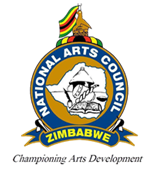A festival that celebrates the Jerusarema Mbende dance that was proclaimed a Masterpiece of the Oral and Intangible Heritage for Humanity by UNESCO in 2005. Mbende Jerusarema Dance was proclaimed a Masterpiece of the Oral and Intangible Heritage of Humanity with Murewa Culture Centre acting at the reference place for safeguarding purposes. It is performed by the community of Murewa and Uzumba Maramba Pfungwe (UMP) in the North Eastern Districts of Zimbabwe. The ancient fertility dance was called dembe or mbende, a Shona word for “mole” which signified fertility and hence the dance became very popular with the locals.
Christian missionaries who came to the area disapproved the sexual explicitly dance but the community/practitioners fearing for its extinction, decided to Christian the dance Jerusarema, a Shona pronunciation of Jerusalem (The Holy City). The dance is practiced under the auspices of Chief Mangwende and Nyajina of Murewa and Uzumba Maramba Pfungwe (UMP) respectively survived the Christian onslaught until today. UNESCO, in its wisdom and in order to safeguard the dance, proclaimed it a Masterpiece of the Oral and Intangible Heritage of Humanity. A realization which also paved the way for the establishment of the Safeguarding Committee and the festival that was started by National Arts Council of Zimbabwe in 2008 as an annual event.
The Safeguarding Committee was established in 2007 to spearhead the protection of the Mbende Jerusarema dance. Since its adoption of the 2003 Convention for the Safeguarding of The Intangible Cultural Heritage, the Government of Zimbabwe facilitated the research of the dance and in 2005 the Mbende Jerusarema became the first Zimbabwean Dance to be proclaimed a Masterpiece of Oral and Intangible Heritage of Humanity. Hence a Safeguarding Committee was established and is chaired by one of the most practical cultural custodians, Headman Zihute of the Magwende clan.
The main objectives of Jerusarema Mbende Dance Festival are to:
- To safeguard the Mbende Jerusarema Dance through the organization of training workshops from Master Practitioners and School teachers involved in dance.
- To organize annual dance festivals, concert and exhibitions in order to create employment for dance groups.
- To organize exchange programmes with other districts and international groups at least once a year.
- To screen and register Master Practitioners who will train teachers and school children the skills of the dance.
- To appoint researchers of the Mbende Jerusarema dance through the National Arts Council of Zimbabwe
